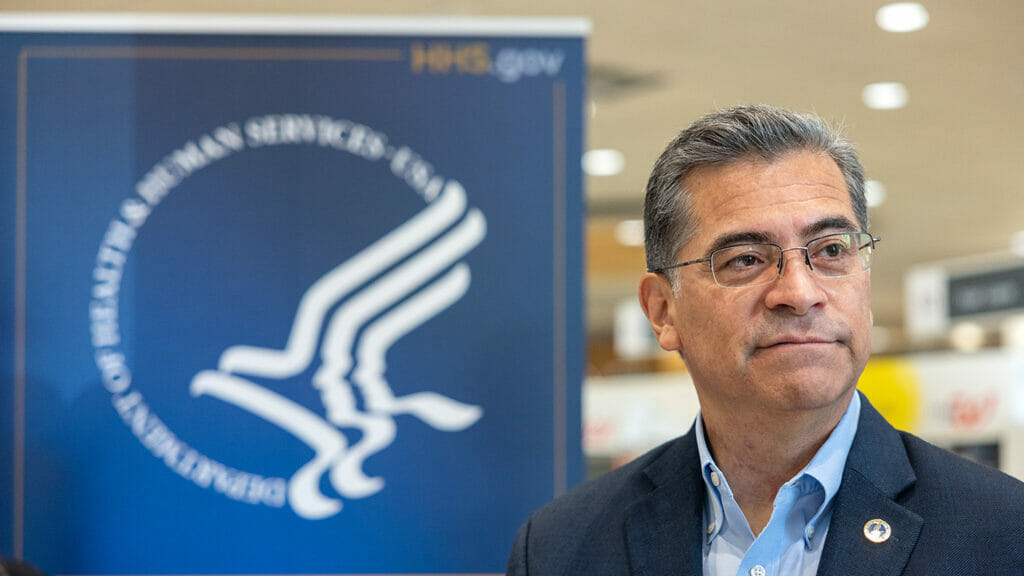
The Centers for Medicare & Medicaid Services issued a final Medicare Advantage rule late Wednesday that cracks down on shady marketing by MA plans and ensures MA enrollees get the same access to care as those enrolled in traditional Medicare plans.
The new rule, which reflects the proposed rule released in February, requires health insurers to mention an MA plan’s name in all television advertising and prohibits private health insurers from using Medicare logos or imagery that could be misconstrued as an endorsement by the federal government. The rule also requires additional guidelines for insurance agents and brokers.
“The confusion that often arises and the changes some enrollees will often make to their detriment in getting healthcare are things we want to try to avoid,” Health and Human Services Secretary Xavier Becerra told reporters during a press briefing.
The new rule also tries to eliminate barriers to accessing care by ensuring that all MA plans comply with coverage regulations that apply to both MA and traditional fee-for-service Medicare plans. It also streamlines the prior authorization process and requires MA plans to provide consistent care throughout a beneficiary’s course of treatment.
“MA plans cannot add additional hoops to go through before an MA enrollee can access care they are entitled to under Medicare,” CMS Deputy Administrator Meena Seshamani, MD, told reporters.
HHS also is expanding access to behavioral health services under the final rule and including a health equity index in MA Star Ratings to ensure underserved populations have equal access to care.
The tougher MA regulations come less than a week after CMS updated 2024 rates for MA plans, offering a 3.32% payment bump and phasing in a risk adjustment model over three years. Becerra said both actions will put “appropriate guardrails in place” to make sure consumers are protected and MA plans are adequately funded to provide care.
MA plans — which account for just under half of the nation’s 65 million Medicare beneficiaries — have come under increased scrutiny in recent months. The plans have been criticized for using aggressive marketing tactics to enroll beneficiaries and for falling short on coverage. An Office of Inspector General report last year found the plans often deny or delay services covered under Medicare. A more recent report by Kaiser Family Foundation found MA plans denied 6% of prior authorizations in 2021.



